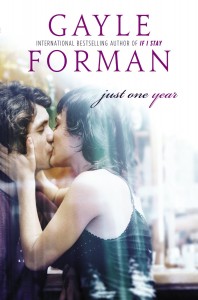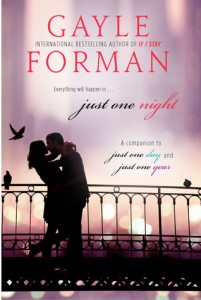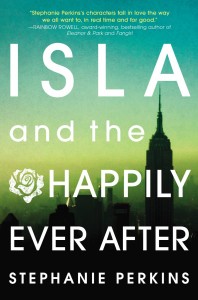This week’s Tablet magazine column took a look at contemporary YA novels in which being Jewish is part of the characters’ lives, not the whole megillah (as it were). I was interested in contemporary, romantic stories that reflect the lives of most Jewish kids in America today, and therefore do not contain Nazis, neo-Nazis, Cossacks, labor strikes, repressive ultra-Orthodox parents, heavy-handed moral lessons, garden-variety antisemitic assholes, crises of faith or general torment about being Jewish. (Please don’t complain to me about the illustration. I know it contradicts the story.)
Read all these books (links to buy and more importantly, REASONS TO DO SO are in the Tablet piece). I apologize for not having a damn clue how to lay them out horizontally in a nice normal line in WordPress. YOUR MODERN WORLD FRIGHTENS AND CONFUSES ME.
And wait! I have MORE THOUGHTS on Jewy-not-Jewish YA!Â
If I weren’t restricting myself to romances here, I’d have recommended Me and Earl and the Dying Girl, which doesn’t feature a love story but is the most hilarious book about a young Jewish girl with fatal cancer I have ever read. (Low bar. FINE. How about, “a quirky, outrageous and moving story about death and moviemaking”? Better?) Our narrator knows the aforementioned dying girl from Hebrew School, but religion doesn’t play a big part in the narrative. Still, the bitter, jokey, self-deprecating, self-referential tone of the book feels very Jewish, and author Jesse Andrews clearly knows from Jewy.
[My mother]Â is the executive director of Ahavat Ha’Emet, a nonprofit that sends Jewish teenagers to Israel to work on a kibbutz and lose their virginity. I should point out that the virginity-losing part is not technically in the mission statement of Ahavat Ha’Emet. I’m just saying, you do not leave Israel without getting laid. Â You could have an eight-inch-thick titanium diaper bolted to your pelvis, and you would still somehow get laid. It should be their official tourism slogan: Israel. Where Virginity Goes to Die.â„¢
I am now fondly remembering Alexander Muss High School in Israel, and that cute soldier named…Avi? Erez? Efrem? Something like that.
Where were we? Right. Robin Wasserman’s Hacking Harvard is a caper story about a group of teenagers manipulating computers and humans to get an unlikely candidate into Harvard. There are references to Harvard Hillel (the Korean-American character really likes eating there) and the main character’s troubled relationship to Hebrew School. After he gives his non-Jewish romantic interest a Hershey Kiss with little blue six-pointed stars on the wrapper – a leftover favor from his cousin’s Bar Mitzvah — he reflects on his own Bar Mitzvah (“My parents thought the whole party thing was a ‘gross commercialization of sacred tradition,’ so instead we went to Israel for a week and I read my Torah portion by the Western Wall. Then we had a falafel dinner with my grandparents.â€). He tells her he got kicked out of Hebrew School because he and the aforementioned Max Kim rigged the shul’s sound system to start playing Rudolph the Red Nosed Reindeer during the menorah-lighting ceremony, and also put antlers and Santa hats on the Torahs.
I started giggling. “SO basically you’re going to hell?â€
“Not me,†he said, tossing me another star-spangled Kiss. “Jews don’t really believe in hell. You ask me, it’s the best part.”
He goes on:
“That’s the thing – in some religions, you’re supposed to behave so that you don’t get punished after you die, right? Or you’re supposed to do good things so that you’ll end up in some kind of eternal paradise. But Judaism isn’t about what happens next. It’s about what happens, here, in this life. You don’t necessarily get rewarded for doing the right thing; you don’t get punished for doing the wrong thing. You’re supposed to be a good person just because that’s the right thing to do. Doing the right thing – that’s the reward.â€
Clueful and Jewishly identified, right? But otherwise, not a big part of the story.
I didn’t address young adult novels in which characters have Jewish names but no real Jewish background or characteristics. I also didn’t touch on Jewish-inflected speculative fiction — I’ve written in Tablet about both Alex London’s Proxy and Phoebe North’s Starglass (both now have sequels) and there are a lot more out there. And I didn’t mention middle-grade novels or historical novels that are matter-of-fact about the characters’ Jewishness and don’t make it the central plot point, or books that feature Jewish and are angsty but not JEWISHLY angsty (like The Things A Brother Knows, which is truly great).
Remind me about these topics later when I’m stuck for a column idea. And please suggest more books! (Also, I don’t read the comments on my Tablet pieces anymore because they’re so often nasty and/or moronic, so if you wanna talk to me, do it here or email me.)






I picked up Starglass on your recommendation a while ago, and really, really enjoyed it. That’s some solid science fiction, there. I’m pushing it heavily with my dystopian-crazed teens (including my 15-yo niece – she’s Catholic but Jew-curious).
Now adding Proxy to my to-read pile. Keep ’em coming!
Yay! Thanks, Sarah!